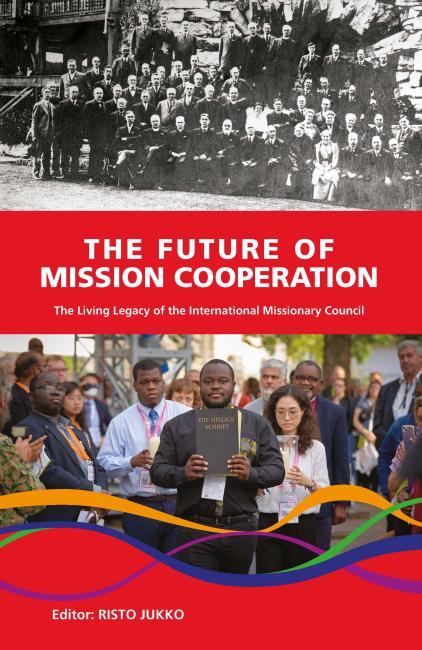A new volume of ‘The Future of Mission Cooperation’ was released by the World Council of Churches in a hybrid event on 24th March. It can be downloaded for free here. It is the third volume produced by the International Missionary Council (IMC) to reflect on the centenary of the IMC (1922-2022).
The decision to form the IMC was taken in 1920, after the First World War hindered mission cooperation and the fostering of unity. The following year 61 representatives of churches, mission societies, and other bodies gathered at Lake Mohonk, in upstate New York, for the council’s founding meeting.
In 1961, at the WCC 3rd Assembly, the IMC was integrated into the WCC and transformed into the WCC’s Commission on World Mission and Evangelism (CWME).

The new volume of ‘The Future of Mission Cooperation’ offers a wide spectrum about those engaged in the practice and study of Christian missions and offers contemporary insights into the broad and complex landscape of global Christianity.
The book is an intentional shift of de-centering the focus of the IMC as an organisation, to movements and actions in various regions.
The first part of the book provides nine regional reports produced by study centres/groups. The reports paint a vivid picture of choice and challenges facing churches and mission actors in today’s world and illustrate how diverse and multi-faceted mission has become in the world.
The reports witness to the reality that there are relationships among churches which breathe the spirit of colonialism, and dependence of exclusivist practices which push certain groups, communities or whole churches to the margins. Many churches are tainted by racism and social inequality. Mission is not only about bringing the gospel to people or working for justice and reconciliation or about diaconia. It is about the willingness and capacity of the churches as well for metanoia and a self-critical transformation, and the journey towards decolonization of mission.
People in positions of privilege have much to learn from the daily struggles of people living in marginal conditions through struggle in and for life. Those at the margins often have the epistemological privilege of recognising exclusionary rules and practices that threaten their survival and can best discern the urgency of their struggles. At the same time, marginalised people are reservoirs of active hope.
Previously, one was led to believe that ‘mission problems’ are in the global south, and that the solutions came only from the global north. In a place of dialogue, both can be seen as having problems and providing solutions. Just principles of partnership are prioritised in contrast to dispensing power by a privileged few. Multi-level global dialogue spaces are integral to future mission co-operation and authentic decolonizing.
More locally, we need to think less of the ‘migrant church’ and more about recognising the commitment to witnessing to Christ as a legitimate expression of Christian faith, whatever form it takes. ‘Migrant churches’ need to be seen as a contemporary expression of the richness of the Trinity.
World Christianity is no longer identified with any one region or culture but finding expression in every part of the globe. It was the historic task of the International Missionary Council to navigate a journey from a ‘west to the rest’ understanding of mission, to one of ‘from everywhere to everyone’. When we are called to mission we are necessarily brought into a dynamic relationship with others who share the same calling regardless of how different they might be from ourselves.